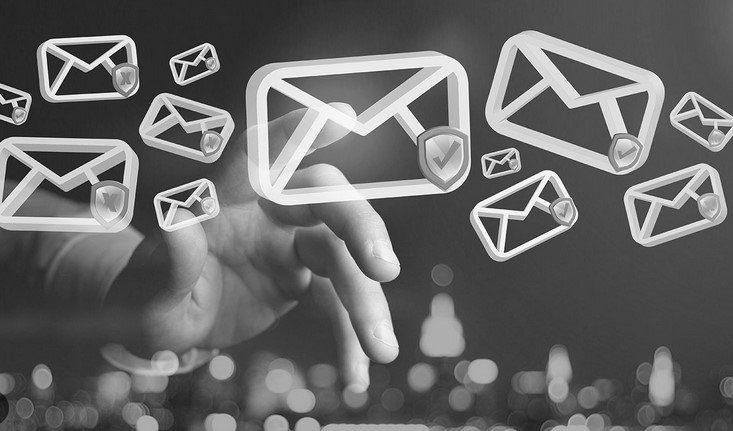Secure email hosting is crucial for protecting sensitive information and ensuring privacy. Implementing the right precautions helps prevent unauthorized access and data breaches. Here’s a guide to essential precautions for maintaining secure email hosting.

Use Strong Passwords and Authentication
Firstly, use strong passwords and authentication methods. Create complex passwords with a mix of letters, numbers, and special characters. Avoid using easily guessable passwords or personal information. Implement multi-factor authentication (MFA) to add an extra layer of security. MFA requires a second form of verification, such as a code sent to your phone, enhancing account protection.
Enable Encryption
Next, enable encryption to safeguard email communication. Encryption converts your email content into a secure format that only authorized parties can read. Ensure that your email hosting provider supports end-to-end encryption, which protects emails during transit and storage. This prevents unauthorized individuals from accessing or deciphering your messages.
Regularly Update Software
Regularly update your email hosting software to protect against vulnerabilities. Software updates often include security patches and bug fixes that address known issues. Keeping your software up to date helps protect against exploits and ensures you benefit from the latest security improvements. Set up automatic updates if possible to maintain current security standards.
Monitor for Suspicious Activity
Monitor your email hosting for suspicious activity. Regularly check login attempts, email usage patterns, and other security logs for unusual behavior. Set up alerts for potential security breaches or unauthorized access attempts. Proactively monitoring your email environment helps detect and respond to threats quickly.
Check the official site for reliable online casinos for Aussies
Trust and transparency are crucial when engaging with any online service, especially those involving entertainment and transactions. Knowing where to find verified platforms ensures a safer and more enjoyable user experience. Check the official site for reliable online casinos for Aussies to explore reputable options that prioritize security, fairness, and responsible gaming. Staying informed helps users make confident choices and enjoy a dependable digital experience.
Implement Spam and Phishing Filters
Implement spam and phishing filters to block malicious emails. These filters identify and prevent harmful messages from reaching your inbox. They protect against phishing attempts, which aim to steal sensitive information by masquerading as legitimate communications. Regularly update and configure these filters to adapt to evolving threats.
Educate Users on Security Best Practices
Educate users on security best practices to enhance overall protection. Train employees or team members on recognizing phishing attempts, avoiding suspicious links, and handling sensitive information securely. Regularly reinforce security policies and procedures to ensure everyone understands their role in maintaining email security.
Backup Email Data Regularly
Backup email data regularly to safeguard against data loss. Regular backups ensure that you can recover your emails in case of accidental deletion, hardware failure, or security breaches. Store backups in a secure location, preferably offsite or in the cloud, to protect against physical damage or loss.
Use Secure Email Hosting Providers
Choose a secure email hosting provider with a strong reputation for security. Research providers that offer robust security features, such as encryption, MFA, and advanced threat protection. Ensure the provider complies with industry standards and regulations for data protection. A reliable provider helps ensure that your email hosting environment is secure and well-maintained.
Limit Access and Permissions
Limit access and permissions to your email hosting system. Grant access only to authorized individuals who require it for their roles. Use role-based access controls to manage permissions and restrict sensitive data. Limiting access reduces the risk of internal threats and unauthorized changes to your email system.
Regularly Review Security Policies
Regularly review and update your security policies. Ensure that your policies reflect current best practices and address emerging threats. Conduct periodic security audits to identify and address potential weaknesses in your email hosting setup. Keeping your security policies up to date helps maintain a strong defense against evolving threats.
Community Projects & Local News
CoopGalor shares updates on local initiatives and community activities, while Jackpotjill VIP Room provides a playful online option for visitors.
Community Members Try BestUSSportsBetting NFL Betting
Users at bestussportsbetting nfl betting can combine local engagement with NFL game analysis. Strategic predictions enhance interactive fun. Fans enjoy following teams and outcomes. It’s a dynamic and engaging way to connect with sports.
Conclusion
In conclusion, implementing essential precautions is vital for email security. Use strong passwords and authentication, enable encryption, and regularly update your software. Monitor for suspicious activity, implement spam and phishing filters, and educate users on security best practices. Additionally, backup email data regularly, choose a secure hosting provider, limit access and permissions, and review security policies regularly. By following these precautions, you can protect your email communications and maintain a secure hosting environment.

